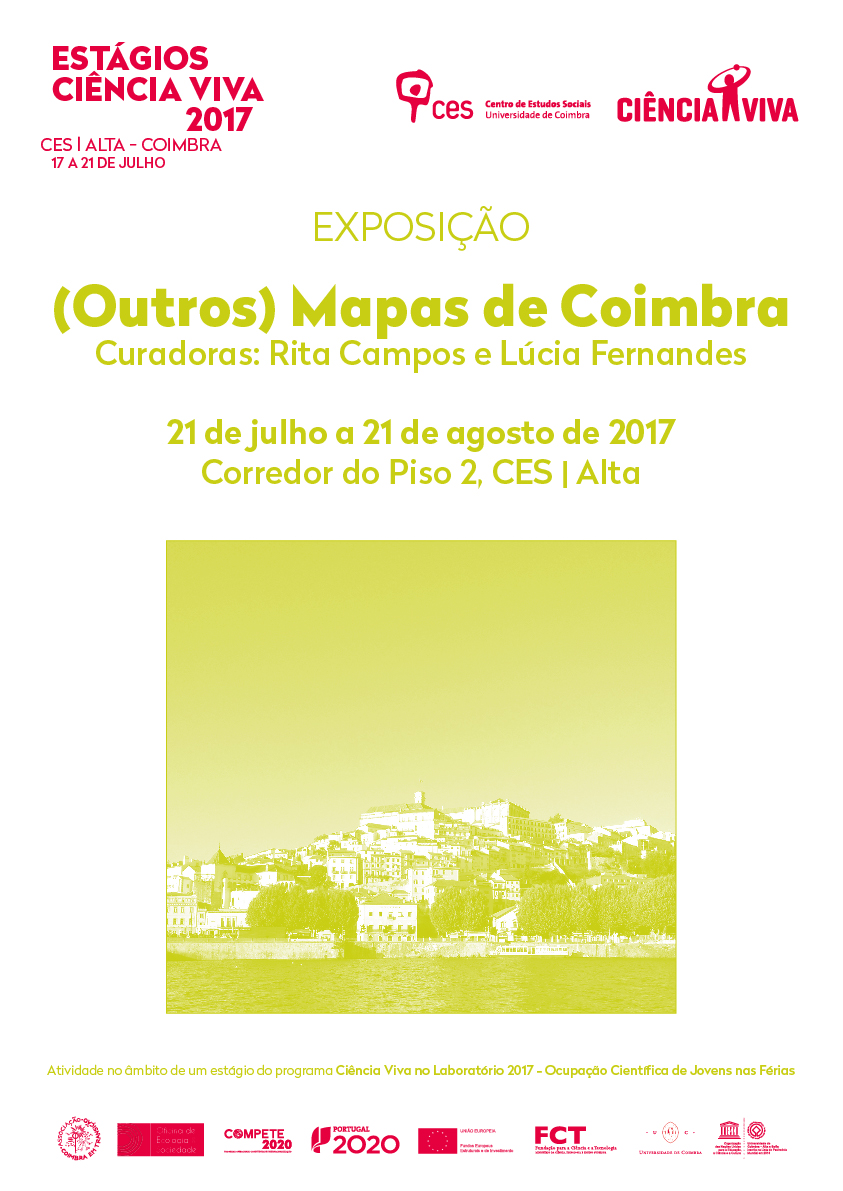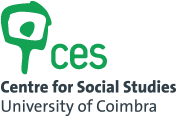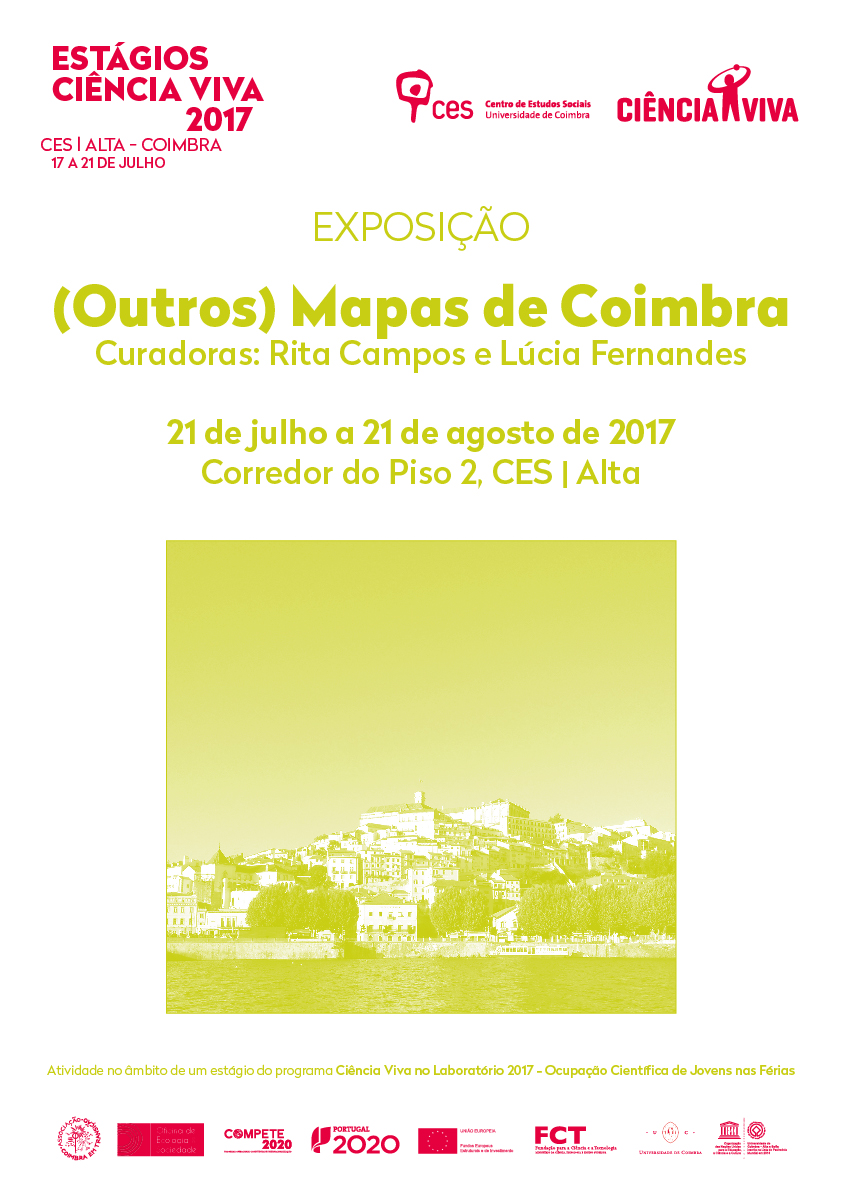Exhibition
(Other) Maps of Coimbra
July 21 to August 21, 2017
2 Floor Hall, CES | Alta
Framework
Human societies are intimately associated with biodiversity, relying on them to secure services and resources. The global crisis affecting biodiversity has profound impacts on all of us. One of these impacts falls upon health, defined by the World Health Organization as "a complete state of physical, mental and social well-being, not just the absence of disease or infirmity".
The global growth of human populations and their tendency to concentrate in clusters poses serious challenges to the conservation and management of biodiversity and to health maintenance. In this sense, urban green spaces emerge as a solution to minimize the impact of reducing biodiversity in cities. These spaces arise either from political land-use planning decisions or from the will of local communities. In both cases, the mobilisation and intervention of the population assume a relevant role, which greatly depends on the awareness of the importance of urban green spaces.
"(Other) Maps of Coimbra" is the result of the challenge to secondary school students, during an internship programme of Ciência Viva no Laboratório - Ocupação Científica de Jovens nas Férias, to travel through the city of Coimbra and try to map its better or less known green spaces, the places where the absence of these spaces is felt and the ways the association Coimbra em Transição, in its quest for a more resilient lifestyle, in close relation and partnership with local communities.
Bio Notes of the Curators
Rita Campos is a biologist, holding a PhD in Biology by the University of Porto. After several years working on evolution and population genetics, and following some action on science communication and non-formal education that has been implementing since 2009, starts in September 2016 a postdoctoral project on Science Communication. This project will be developed in collaboration with the Centre for Social Studies (CES, University of Coimbra), the Research Centre in Biodiversity and Genetic Resources-Research Network in Biodiversity and Evolutionary Biology (CIBIO-InBIO, University of Porto) and the Federal University of Rio Grande do Norte (UFRN, Brazil).
Lucia Fernandes is postdoc, a joint project between the SOCIUS (University of Lisbon) and CES. The project addresses environment, health and citizens mobilization in Transition experiences in Portugal and other sustainability experiences. Other research topics relate to environmental conflicts in Portugal and she was co-coordinator of EJ atlas Portugal. PhD in Sociology from the University of Coimbra. Master of Social Sciences, Environmental Policies speciality from the University of Aveiro, and a degree in Chemical Engineering from the Federal University of Rio de Janeiro has conducted research and published in interdisciplinary journals.
Activity in parternship with Associação Coimbra em Transição.


